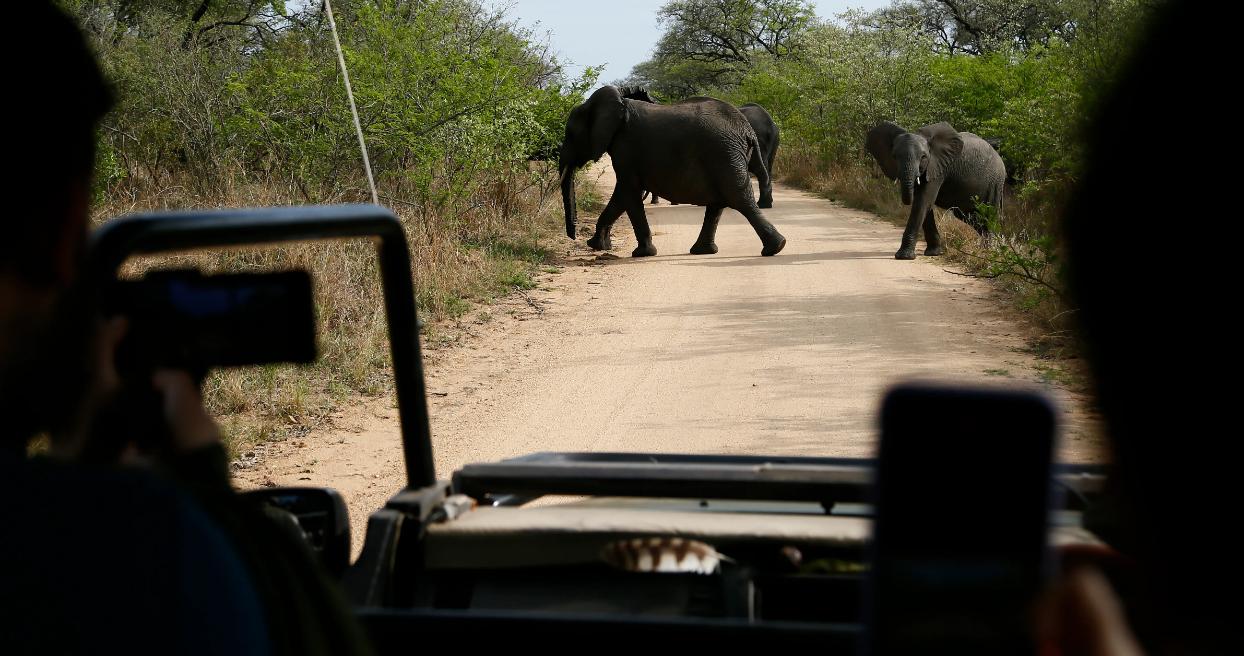Less than three months after the initiative was launched on World Environment Day (June 5) this year, the project achieved its goal of planting 25 out of the total 50 hectares planned.

South Africa’s Draft Biodiversity Economy Strategy Sparks Debate
On March 8, 2024, the Department of Forestry, Fisheries and Environment (DFFE) of South Africa released a draft National Biodiversity Economy Strategy (NBES) for public comment. The consultation period was initially set for two weeks but later extended to April 5, 2024.
The NBES, developed in line with the Kunming-Montreal Global Biodiversity Framework and South Africa’s White Paper on Conservation, aims to unlock economic opportunities from the country’s rich biodiversity. However, a key provision in the draft strategy has sparked controversy.
Proposed Domestic Trade in Wildlife Products Raises Concerns
Action 10.4 of the draft NBES proposes establishing a regulated domestic market for “high-end parts and derivatives” from certain animals, including rhino horn and elephant ivory. This proposal envisions local processing and sale of these products, such as through traditional medicine clinics for tourists or ivory carving workshops.
Conservation groups, including PanNature, have expressed strong concerns about this proposal. They believe it would:
- Increase demand and poaching: Legalizing domestic trade could stimulate demand for rhino horn and ivory, leading to increased poaching of these already threatened species.
- Undermine conservation efforts: Years of anti-poaching efforts could be undermined if a legal market is established.

PanNature’s Call to Action
PanNature submitted comments to the DFFE on April 5, 2024, urging the removal of Action 10.4 from the NBES. We suggest that a sustainable biodiversity economy can be built without jeopardizing wildlife populations with following points:
- The draft NBES affirms that “biodiversity is a national asset”, however, the regulations in Action 10.4 will have serious impacts on wildlife populations, especially rhinos and elephants – two iconic species of the Republic of South Africa – which are facing many threats from poaching and illegal trade. The promotion of wildlife trade, even domestically, also facilitates the destruction of biodiversity resources.
- The Republic of South Africa joined the Convention on International Trade in Endangered Species of Wild Fauna and Flora (CITES), is a member state of the Convention on Biological Diversity (CBD), and signed many commitments to other conservation, in which international commitments emphasize the need to maximally protect wild species populations and existing ecosystems. In particular, CITES stipulates the prohibition of international trade in rhino horn and ivory for commercial purposes. Therefore, restarting the domestic trade policy of rhino horn and ivory will greatly affect the Republic of South Africa’s image in the international arena and also cause concern for many regions and countries that are trying to cooperate in preventing and combating illegal wildlife trade.
- The establishment of a legal domestic market for parts and products from threatened animals, including rhino horn and ivory, will stimulate consumer demand as well as promote poaching and illegal trade. Legality has persisted in the Republic of South Africa, complicating domestic law enforcement efforts and creating opportunities for many types of criminals to operate extensively, causing a risk to national and global security.
- Asia is considered a transit and consumption point for wildlife, including products from rhino horn and ivory originating from Africa, especially Vietnam and China. Therefore, the Republic of South Africa’s new policy, if adopted, will undermine ongoing demand reduction and behavior change efforts in these countries.
- Action 10.4 in the NBES encourages the use of rhino horns for medical treatment among tourists from the East, but numerous international studies show that rhino horns and wildlife products not only have no curative effect but also pose many potential risks to human health. The Republic of South Africa should promote the development of alternative medicinal sources derived from plants instead of using products from wild animals – a solution that goes against the trend of the times and global commitments.
- According to CITES regulations, rhino horn, elephant ivory, and all specimens listed in Appendix I are prohibited from being traded for commercial purposes. Therefore, even if tourists buy rhino horn and ivory products from the Republic of South Africa, they cannot bring them back to their home country without a CITES permit. They may have their exhibits confiscated and be criminally punished when they return to their home country. Therefore, the NBES Strategy may mainly serve target groups and criminals who trade illegal wildlife, not real tourists.
- Vietnam, China, and many Asian countries in recent years have issued policies to control illegal wildlife trade more strictly, while also coordinating with international conservation organizations to implement many effective demand reduction and behavior change programs. This is a common trend globally and we hope that the Republic of South Africa will join hands with the world to repel hunting, poaching, and illegal wildlife trade.
- With the wonderful biodiversity that your country possesses, the Republic of South Africa has many opportunities to invest and promote conservation tourism and sustainable tourism in the direction of respecting nature and the world of species.
Given the significant concerns outlined above, PanNature urges the Department of Forestry, Fisheries and Environment (DFFE) and the High-Level Advisory Committee to remove Action 10.4 from the draft National Biodiversity Economic Strategy (NBES). We further recommend a review of related policies to ensure a focus on nature conservation and robust wildlife protection strategies.
South Africa’s unique biodiversity is a national treasure. By prioritizing sustainable practices, we can ensure a thriving biodiversity economy that coexists with healthy wildlife populations.
|
Environmental Investigation Agency (EIA) Weighs In The Environmental Investigation Agency (EIA), a leading organization in combating wildlife trafficking, also voiced strong opposition to Action 10.4 of the draft NBES in their comments submitted on April 4, 2024. EIA’s Concerns:
EIA on Trophy Hunting: EIA additionally expressed concerns about the proposed increase in trophy hunting quotas for elephants and other Big Five species. They emphasize the importance of science-based, sustainable hunting practices that prioritize conservation over profit. |
|
South Africa’s Draft Biodiversity Economy Strategy The National Biodiversity Economy Strategy (NBES) aims to unlock economic potential from South Africa’s diverse ecosystems. It outlines goals to promote sustainable practices like ecotourism, expand wildlife management systems, and support coastal communities. However, specific proposals, such as expanding trophy hunting and allowing domestic trade in rhino horn and ivory, have generated controversy. The DFFE initially held public consultations on the draft NBES from March 8-22, 2024. Due to public interest and recommendations, the consultation period was extended to April 5, 2024. |



